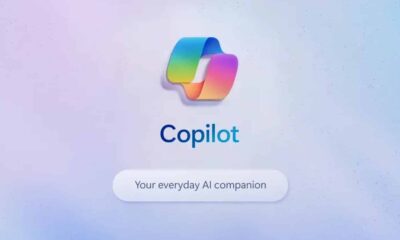AI
Who owns ElevenLabs?
Is ElevenLabs a siren song luring us into ethical peril, or is the next startup primed to become a household name? The jury’s still out.

Just a heads up, if you buy something through our links, we may get a small share of the sale. It’s one of the ways we keep the lights on here. Click here for more.
Quick Answer: ElevenLabs is owned by its founders, Piotr Dabkowski and Mati Staniszewski, with backing from investors.
Turns out the brains behind the sassy AI voices telling you the weather belong to two tech bros you’ve probably never heard of.
But the questionable origins of ElevenLabs will make you think twice about giving your smart speaker an upgrade.
ElevenLabs burst onto the scene quicker than your average viral TikTok dance, dazzling over a million users with its flagship speech synthesis tool.
For context, this little piece of software breathes uncanny emotional range into robotic voices, spitting out expressions as fast as Kanye spouts controversy.
ElevenLabs made waves with its viral voice cloning software, but who’s behind this increasingly controversial AI startup?
So, who owns ElevenLabs?
Apparently, the company’s two owners have some impressive notches on their belts. So what’s the history? Where were they before?
Short Answer: ElevenLabs is owned by its founders, former Google brainiac Piotr Dabkowski and Palantir strategist Mati Staniszewski.
What do a machine learning expert and corporate schemer make when they join forces? An AI startup so potentially problematic that even Mark Zuckerberg raised an eyebrow.
ElevenLabs ownership
Dabkowski and Staniszewski remain the key shareholders and decision-makers, but ElevenLabs now also counts influential VC firms like Andreessen Horowitz as major investors.
They have a unique approach to voice synthesis, using contextual clues from the text to determine the appropriate emotion and adjust things like tone and inflection.
This helps the AI deliver longer texts more naturally by preserving that context over time.
On the surface, ElevenLabs looks slick. The voice cloning tech impressed notoriously picky Silicon Valley investors into forking out $2 million pre-seed so the company could scale up.
They’re also working on user-designed voices and paying actors for clones, indicating an ethical approach to using human voices.
On the surface, ElevenLabs looks slick.
The voice cloning tech impressed notoriously picky Silicon Valley investors into forking out $2 million pre-seed so the company could scale up.
But now ethicists are wagging their fingers about the “Black Mirror-esque” implications. And to be fair, they’re certainly not wrong about that.
“It’s only a matter of time before this voice mimicry gets out of hand,” tweeted leading AI philosopher Susan Schneider. “Deepfakes are so 2020. The real victim in 2023 is truth itself.”
ElevenLabs Cheat Sheet
- Founders: Piotr Dabkowski (former Google engineer) and Mati Staniszewski (ex-Palantir strategist)
- Established: 2022
- Headquarters: United States
- Product: AI-powered speech synthesis platform
- Special Features: Emotionally responsive voice synthesis, quick voice cloning
- Investors: Andreessen Horowitz among others
- Funding: $2 million pre-seed funding
- User Base: Over a million users
ElevenLabs may have built a better vocal mousetrap, but some experts worry we’ll all wind up getting snapped if the wrong people get their hands on it.
Still, the founders swear that world domination isn’t part of their grand plan.
“We just want to take voice tech to the next level,” Dabkowski innocently shrugged in an interview.
Is ElevenLabs a siren song luring us into ethical peril, or is the next startup primed to become a household name? The jury’s still out.
 ElevenLabs
ElevenLabs
ElevenLabs offers a platform for generating AI-powered synthetic voices with a multilingual reach, focusing on authentic speech synthesis for various digital uses.
- The voices sound natural, like a real person talking, which is great for things like podcasts or narration.
- You can change things like tone and pitch to get the voice to sound just the way you want.
- Whether you need it for work or for fun, this tool fits a lot of different needs.
- The voices are clear and easy to understand, making your projects sound better than with basic text-to-speech tools.
Have any thoughts on this? Drop us a line below in the comments, or carry the discussion to our Twitter or Facebook.
Editors’ Recommendations:
Just a heads up, if you buy something through our links, we may get a small share of the sale. It’s one of the ways we keep the lights on here. Click here for more.


































